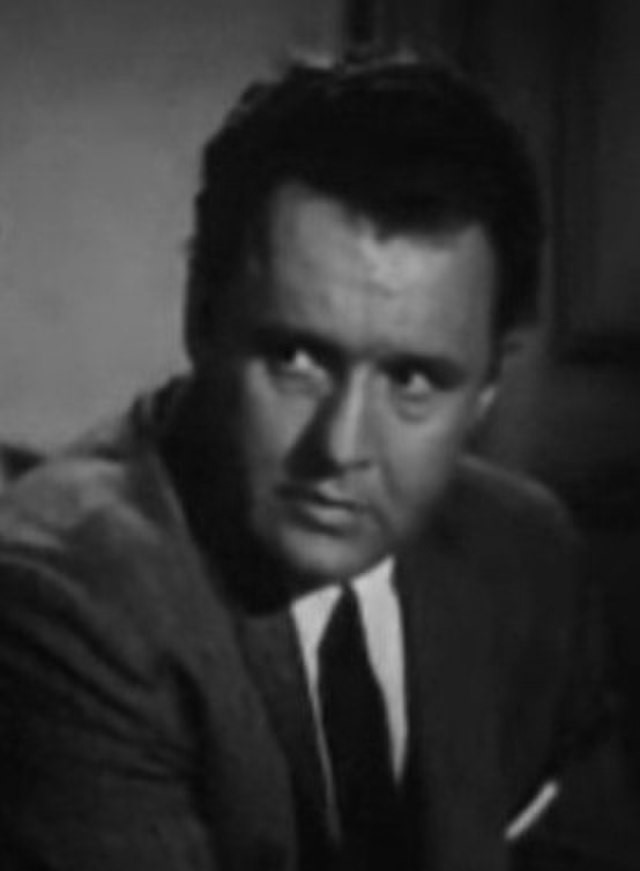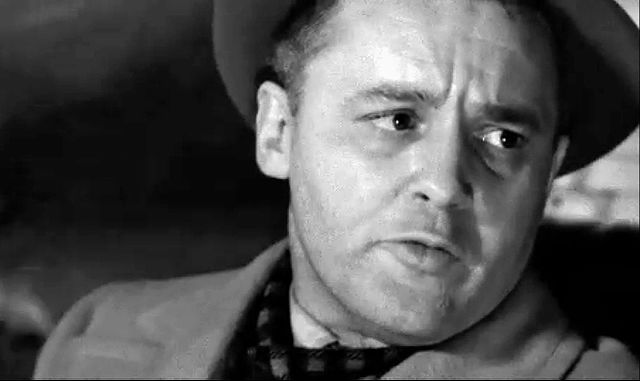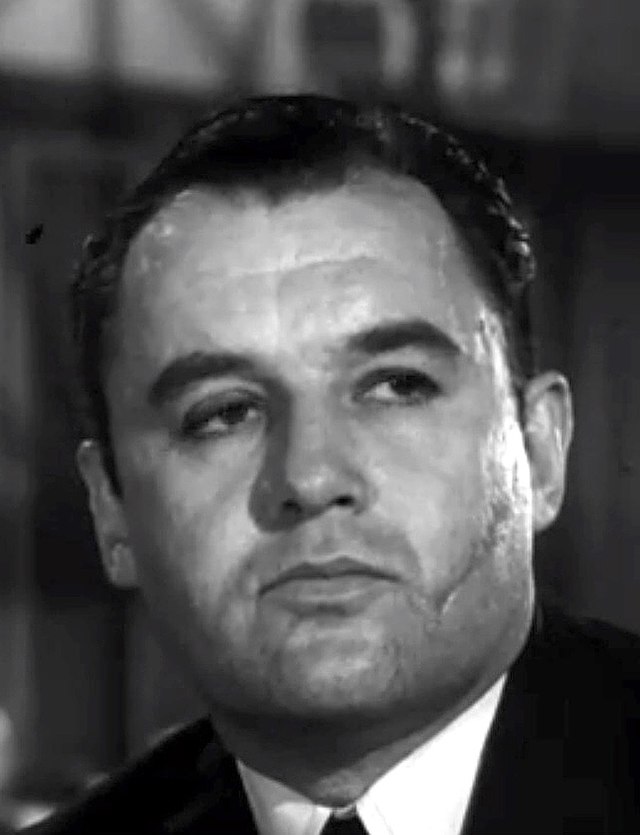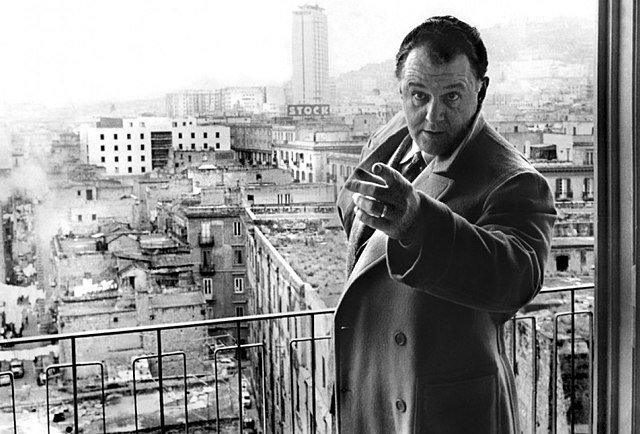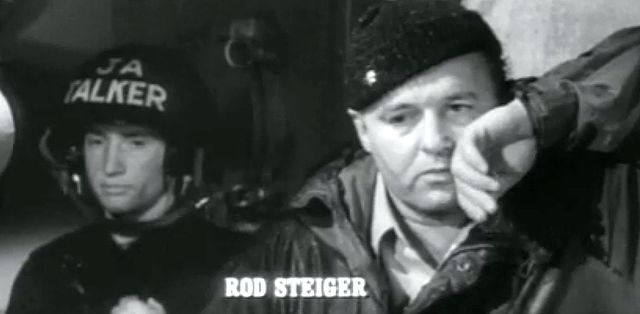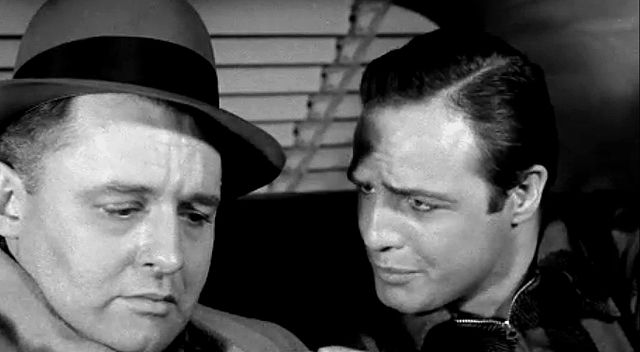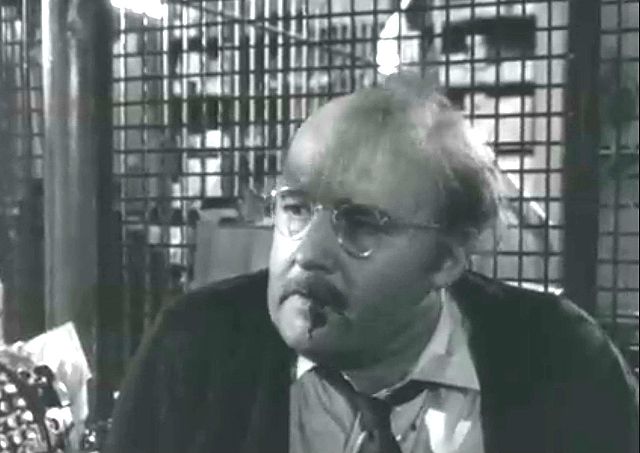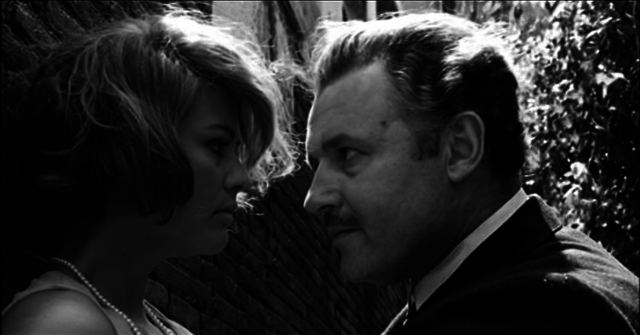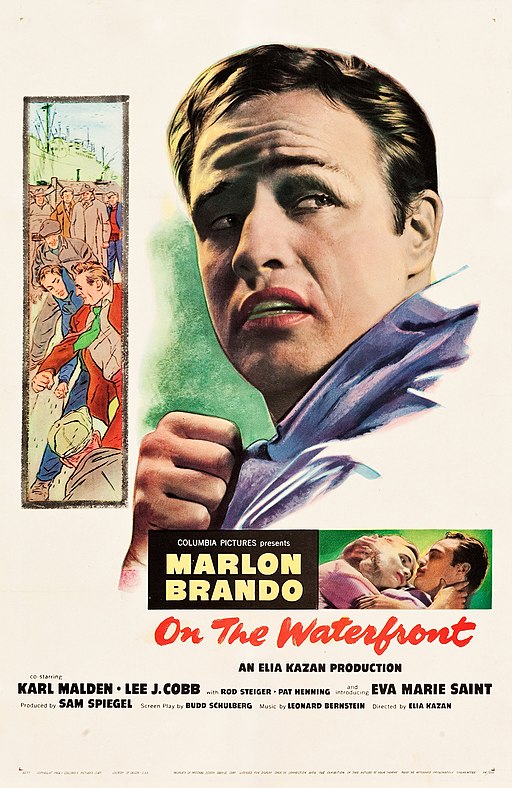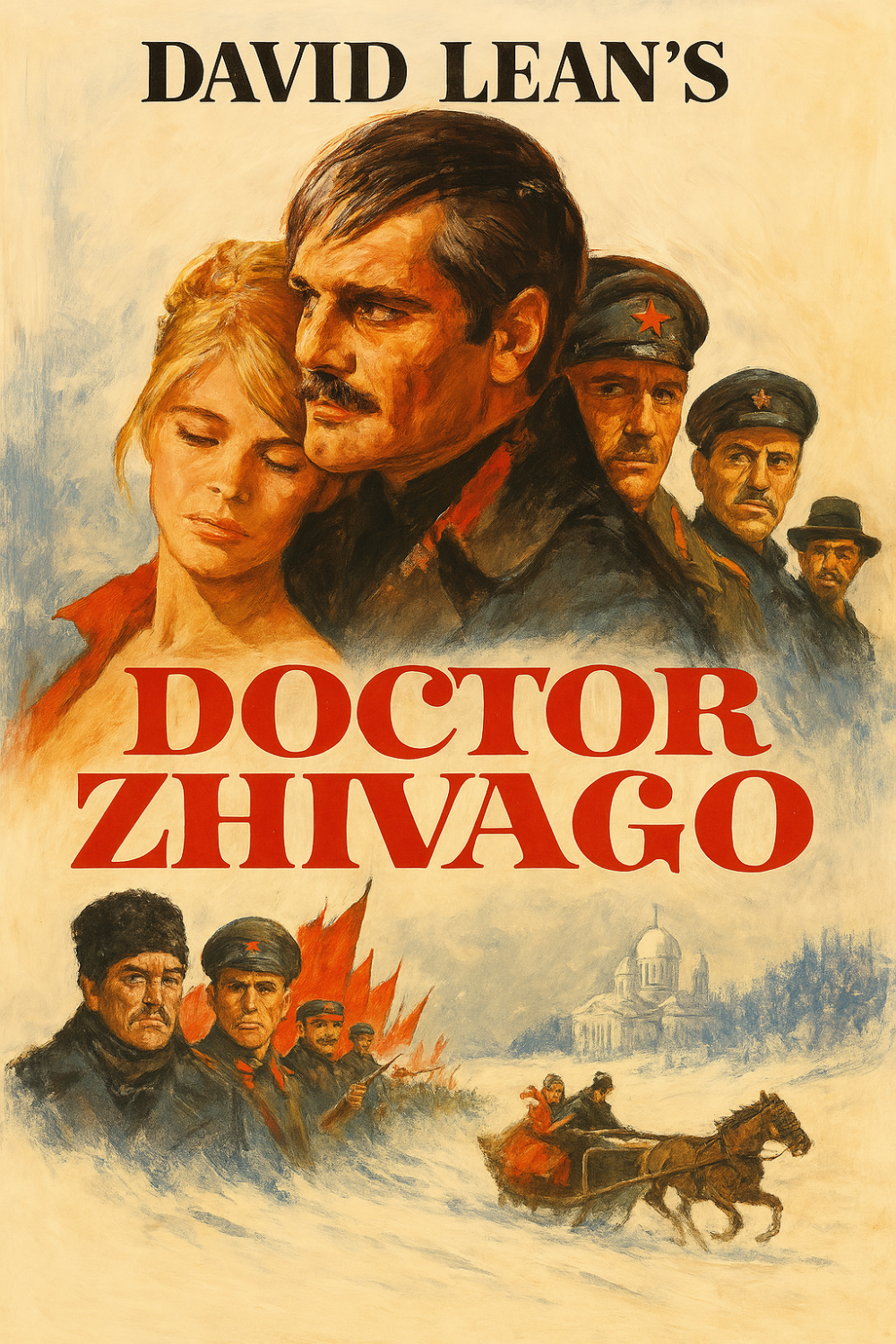Rod Steiger
back| Full Name | Rodney Stephen Steiger |
| Stage Name | Rod Steiger |
| Born | April 14, 1925 |
| Birthplace | Westhampton, New York, USA |
| Died | July 9, 2002 |
| Buried | Forest Lawn Memorial Park (Hollywood Hills), Los Angeles, California, USA |
| Married to | Sally Gracie (1952-1958) - Claire Bloom (1959-1969) - Sherry Nelson (1973-1979) - Paula Ellis (1986-1997) - Joan Benedict Steiger (2000-2002) |
| Children | Anna Steiger (with Claire Bloom), Michael Steiger (with Paula Ellis) |
| Notable films | On the Waterfront (1954) - In the Heat of the Night (1967) - Doctor Zhivago (1965) - Waterloo (1970) - The Amityville Horror (1976) |
Rod Steiger
The Intense Method Actor
Rod Steiger (1925-2002) was an acclaimed American actor known for his intense and emotionally charged performances. Born in Westhampton, New York, he served in the U.S. Navy during WWII before studying acting under Lee Strasberg at the Actors Studio.
Steiger's breakout role came in "On the Waterfront" (1954), earning an Oscar nomination. He won the Best Actor Oscar for "In the Heat of the Night" (1967). Notable films include "The Pawnbroker" (1964), "Doctor Zhivago" (1965), and "The Amityville Horror" (1979). A method actor, Steiger was known for his deep commitment to his roles, often exploring complex, flawed characters.
Related
Rod Steiger (1925 – 2002)
Biography and Movie Career
Rodney Stephen Steiger was born on April 14, 1925, in Westhampton, New York, to Lorraine (née Driver) and Frederick Steiger, who were of German descent. Rod Steiger had a turbulent childhood; his father left the family when he was just a year old, and his mother, who was a vaudeville singer, struggled with alcoholism. Steiger joined the United States Navy at the age of 16, lying about his age to serve during World War II. He saw action in the South Pacific, which deeply influenced his perspective on life.
After the war, Steiger decided to pursue acting and studied at the New School for Social Research and then at the Actors Studio in New York under the legendary Lee Strasberg. Steiger’s method acting approach brought depth and intensity to his performances.
Steiger’s breakthrough role came in the 1954 classic "On the Waterfront," where he played the role of Charley Malloy, the older brother of Marlon Brando’s character. His performance earned him an Academy Award nomination for Best Supporting Actor.
In 1964, Steiger starred in "The Pawnbroker," a film about a Holocaust survivor living in New York City, for which he received critical acclaim and an Academy Award nomination for Best Actor. His portrayal of complex and often tormented characters became a hallmark of his career.
Steiger won the Academy Award for Best Actor for his role as Chief Bill Gillespie in "In the Heat of the Night" (1967), a film that tackled racial tensions in the American South. His portrayal of the bigoted police chief who evolves to work alongside a black detective, played by Sidney Poitier, was powerful and nuanced.
Steiger’s filmography is diverse, ranging from epic films like "Doctor Zhivago" (1965), where he played the character Komarovsky, to horror classics like "The Amityville Horror" (1979). He also portrayed historical figures, such as Napoleon in "Waterloo" (1970) and W.C. Fields in "W.C. Fields and Me" (1976).
Despite his professional success, Steiger’s personal life was marked by tumultuous relationships and struggles with depression. He was married five times, with his marriages often ending in divorce. He had two children: Anna Steiger, an opera singer, with Claire Bloom, and Michael Steiger with Paula Ellis.
In his later years, Steiger continued to work in film and television, remaining a respected figure in the acting community. His final film appearance was in "Poolhall Junkies" (2002).
Rod Steiger passed away on July 9, 2002, due to complications from pneumonia and kidney failure. He was buried in Forest Lawn Memorial Park in Hollywood Hills, Los Angeles. Steiger is remembered for his powerful performances and his ability to bring a raw emotional intensity to his roles.
The Story of Rod Steiger:
Rod Steiger’s Methodical Approach to Acting
Rod Steiger was renowned for his intense, methodical approach to acting, characterized by a deep emotional commitment to his roles and a meticulous preparation process.
Emotional Intensity
Steiger's performances were marked by a profound emotional intensity that drew audiences into the inner lives of his characters. Whether playing a troubled Holocaust survivor in "The Pawnbroker" or a bigoted Southern police chief in "In the Heat of the Night," Steiger's portrayals were raw and visceral, making his characters' emotions palpable and compelling.
Method Acting
A dedicated practitioner of method acting, Steiger studied at the Actors Studio under Lee Strasberg. This approach involved deeply immersing himself in his characters' psychological and emotional states, often drawing on his personal experiences to bring authenticity to his performances. This technique allowed Steiger to deliver nuanced, multi-layered portrayals that resonated with audiences and critics alike.
Versatility
Steiger's versatility as an actor was evident in the wide range of roles he took on throughout his career. He was equally convincing as historical figures, like Napoleon in "Waterloo," as he was in contemporary dramas and thrillers. His ability to adapt to different genres and characters showcased his broad acting range and skill.
Physicality
Steiger often used physicality to enhance his performances, embodying his characters with distinctive movements and mannerisms. This physical embodiment helped to create fully realized characters that felt authentic and lived-in. For example, in "The Pawnbroker," his stooped posture and deliberate, restrained movements conveyed the weight of his character's traumatic past.
Vocal Expression
Steiger had a commanding vocal presence, using his voice to convey a wide spectrum of emotions. He could be forceful and domineering, as seen in his portrayal of Al Capone, or gentle and reflective, as in his role in "The Chosen." His ability to modulate his voice added depth to his performances, allowing him to express his characters' inner turmoil and strength effectively.
Commitment to Authenticity
Steiger's commitment to authenticity often led him to extensive research and preparation for his roles. He would study the backgrounds, behaviors, and dialects of his characters meticulously. For instance, for his role in "The Pawnbroker," Steiger visited concentration camps and spoke with Holocaust survivors to accurately capture the emotional and psychological scars left by such experiences.
Portrayal of Complex Characters
Steiger excelled in portraying complex, morally ambiguous characters. He often chose roles that explored the darker aspects of human nature, delving into themes of guilt, redemption, and identity. His characters were rarely one-dimensional; they were flawed and human, which made them relatable and engaging.
Intense Screen Presence
Steiger's screen presence was magnetic, commanding attention whenever he appeared on screen. His intense gaze and expressive facial features could convey a multitude of emotions without the need for dialogue. This ability to communicate so much with so little made his performances memorable and impactful.
Relatable Vulnerability
Despite often playing powerful or intimidating figures, Steiger infused his characters with a relatable vulnerability. This vulnerability made his characters more human and accessible to the audience, as they could see beyond the exterior to the underlying fears, hopes, and struggles.
In summary, Rod Steiger's acting style was defined by his emotional intensity, methodical preparation, versatility, physical embodiment, vocal expression, commitment to authenticity, portrayal of complex characters, intense screen presence, and relatable vulnerability. These elements combined to make him one of the most respected and compelling actors of his generation.
Personal Quotes:
On Acting:
- "The most important thing in acting is honesty. If you can fake that, you've got it made."
- "I think the art of acting involves something deeper than you can imagine. It's beyond the imagination, it goes beyond the brain cells."
On His Career:
- "The key to the good life is the one who knows how to have fun, never gets bored, and loves to be a little crazy. That is what acting is all about."
- "Every actor wants to be respected for his work, and I’m no different. I'm grateful for the opportunities I've had, but I've worked hard for them."
On Method Acting:
- "What method acting does for you is make you conscious of the process of becoming the character. It keeps you focused on the job at hand."
On Life:
- "Success is like a lightning bolt. It’ll strike you if you’re in the right place at the right time. And you have to know what to do with it."
- "I have a constant fear of being killed, of being destroyed. That's why I think I've survived all these years."
On Challenges:
- "I've always been afraid of failure, but I've also been driven by it. Every time I succeed, I feel that I'm just postponing the inevitable."
On Personal Experiences:
- "My father left when I was a year old, and I used to look for him in crowds. I think that’s why I became an actor—to be seen."
- "I've had a lot of ups and downs, but what I always try to tell young actors is, never give up."
Rod Steigers Iconic Role in “American Gothic”:
"American Gothic," released in 1987, is a horror-thriller film that features Rod Steiger in a prominent role. The movie, directed by John Hough, centers around a group of young adults who find themselves stranded on an isolated island inhabited by a bizarre and terrifying family.
Plot Overview
The story follows six friends who are on a weekend getaway. Their plane experiences engine trouble, forcing them to land on a remote island. They soon discover a secluded house inhabited by an old-fashioned, deeply religious couple, Ma (played by Yvonne De Carlo) and Pa (played by Rod Steiger), along with their grown children who exhibit strange and menacing behavior.
As the friends seek help, they begin to uncover the dark secrets of the family. The tension escalates as the friends realize that the family has sinister intentions and that their own lives are in grave danger. The film builds up to a chilling and violent climax as the friends try to escape the island and the clutches of the deranged family.
Rod Steiger's Role
Rod Steiger plays the character of Pa, the patriarch of the bizarre family. Steiger's portrayal of Pa is both menacing and compelling. He embodies the character with a mix of religious fervor and authoritarian control, creating a chilling and unforgettable figure. Pa is a complex antagonist, driven by his twisted beliefs and a desire to maintain the strict, old-fashioned lifestyle of his family.
Acting Style
In "American Gothic," Steiger's acting style is intense and immersive, characteristic of his method acting approach. He brings a deep authenticity to the role, making Pa's terrifying presence palpable. His ability to convey the character's underlying menace through subtle expressions and controlled body language adds to the film's eerie atmosphere. Steiger's performance stands out as a highlight of the movie, demonstrating his versatility and skill in tackling diverse roles.
Reception
While "American Gothic" received mixed reviews from critics, Steiger's performance was generally praised. His ability to bring depth and nuance to the character of Pa contributed significantly to the film's tension and overall impact. The movie has since gained a cult following, with Steiger's portrayal of Pa being remembered as one of the film's most compelling elements.
Legacy
"American Gothic" showcases Rod Steiger's talent for playing complex and dark characters. His performance in the film is a testament to his versatility as an actor, capable of delivering powerful performances across various genres. Steiger's role in "American Gothic" remains a notable part of his extensive and varied filmography.
What Others said about Rod Steiger:
Peers and Co-Stars:
- Marlon Brando:
Steiger's co-star in "On the Waterfront," Marlon Brando, praised his acting prowess. Brando once remarked on Steiger's intensity and commitment to his roles, acknowledging that Steiger brought a unique depth and authenticity to his characters.
- Sidney Poitier:
Sidney Poitier, who starred alongside Steiger in "In the Heat of the Night," spoke highly of his co-star’s professionalism and talent. Poitier admired Steiger's ability to convey complex emotions and his dedication to making their scenes together as impactful as possible.
- Claire Bloom:
Claire Bloom, who was married to Steiger and worked with him professionally, appreciated his intense preparation and emotional depth. She often noted how deeply he immersed himself in his roles, bringing a rare authenticity to his performances.
Directors and Filmmakers:
- Norman Jewison:
Director of "In the Heat of the Night," Norman Jewison, lauded Steiger’s portrayal of Chief Gillespie. Jewison appreciated Steiger's ability to capture the character's complexity and the nuances of his evolving relationship with Poitier's character, which was central to the film's success.
- Sidney Lumet:
Sidney Lumet, who directed Steiger in "The Pawnbroker," praised Steiger’s performance as one of the most powerful and poignant portrayals he had ever witnessed. Lumet admired Steiger's dedication to understanding and embodying the character's profound suffering and emotional scars.
Critics and Historians:
- Roger Ebert:
Renowned film critic Roger Ebert often praised Steiger’s work, particularly highlighting his performances in "The Pawnbroker" and "In the Heat of the Night." Ebert noted Steiger’s ability to convey deep emotional complexity and his skill in bringing gravitas to his roles.
- Leonard Maltin:
Film critic Leonard Maltin described Steiger as a dynamic and versatile actor. Maltin often pointed out Steiger's talent for fully inhabiting his characters, whether they were deeply flawed individuals or charismatic leaders.
Awards and Recognition:
Academy Awards (Oscars)
Winner:
Best Actor in a Leading Role for "In the Heat of the Night" (1967)
Nominated:
Best Actor in a Supporting Role for "On the Waterfront" (1954)
Best Actor in a Leading Role for "The Pawnbroker" (1964)
British Academy Film Awards (BAFTA)
Winner:
Best Foreign Actor for "The Pawnbroker" (1966)
Nominated:
Best Foreign Actor for "Doctor Zhivago" (1966)
Golden Globe Awards
Winner:
Best Actor – Motion Picture Drama for "In the Heat of the Night" (1967)
Best Supporting Actor – Motion Picture for "The Pawnbroker" (1964)
Nominated:
Best Supporting Actor – Motion Picture for "On the Waterfront" (1954)
Best Actor – Motion Picture Drama for "The Illustrated Man" (1969)
Primetime Emmy Awards
Winner:
Outstanding Single Performance by an Actor in a Leading Role for "The Mark" (1961) (Television adaptation)
Nominated:
Outstanding Lead Actor in a Limited Series or a Movie for "A Month of Sundays" (1981)
Other Awards
Berlin International Film Festival:
Silver Bear for Best Actor for "The Pawnbroker" (1964)
Cannes Film Festival:
Best Actor for "The Pawnbroker" (1964)
David di Donatello Awards:
Best Foreign Actor for "In the Heat of the Night" (1968)
Laurel Awards:
Top Male Supporting Performance for "On the Waterfront" (1954)
National Board of Review:
Best Actor for "The Pawnbroker" (1964)
National Society of Film Critics Awards:
Best Actor for "In the Heat of the Night" (1967)
New York Film Critics Circle Awards:
Best Actor for "In the Heat of the Night" (1967)
Honorary Awards
Hollywood Walk of Fame:
Star on the Hollywood Walk of Fame at 7080 Hollywood Boulevard for his contributions to the motion picture industry.
List of Movies Starring Rod Steiger:
1951 - "Teresa"
Synopsis: An American soldier marries an Italian woman during World War II and brings her back to the United States, where they face cultural and personal challenges.
1953 - "Marty" (TV Movie)
Synopsis: An early TV adaptation of Paddy Chayefsky's play about a lonely, good-hearted butcher who finds love.
1954 - "On the Waterfront"
Synopsis: An ex-prize fighter turned longshoreman struggles to stand up to his corrupt union bosses. Steiger plays Charley Malloy, the conflicted brother of the protagonist.
1955 - "The Big Knife"
Synopsis: A successful actor feels pressured by his studio to renew his contract against his will, leading to personal and professional turmoil.
1955 - "Jubal"
Synopsis: A drifter finds work on a ranch, but his presence creates tension and jealousy, leading to conflict and violence.
1955 - "The Court-Martial of Billy Mitchell"
Synopsis: A dramatization of the true story of General Billy Mitchell, who is court-martialed for accusing the U.S. military of incompetence in air warfare.
1956 - "Back from Eternity"
Synopsis: Passengers on a flight to South America crash in a jungle and must struggle to survive.
1957 - "Across the Bridge"
Synopsis: A crooked businessman tries to escape from a financial scandal by fleeing to Mexico, where his fate becomes intertwined with a small dog.
1957 - "Run of the Arrow"
Synopsis: A Confederate soldier refuses to surrender after the Civil War and heads west, where he joins a Sioux tribe.
1958 - "Al Capone"
Synopsis: A biographical film about the rise and fall of the infamous Chicago gangster, Al Capone.
1961 - "The Mark"
Synopsis: A man convicted of attempted child molestation is released from prison and tries to rebuild his life while grappling with his past.
1962 - "Convicts 4"
Synopsis: A biographical film about John Resko, a convicted murderer who discovers his talent for art while in prison.
1962 - "Hands Over the City"
Synopsis: A political drama about the corruption in the real estate development business in Naples, Italy.
1963 - "The Longest Day"
Synopsis: An epic war film depicting the D-Day landings at Normandy during World War II.
1964 - "The Pawnbroker"
Synopsis: A Holocaust survivor running a pawnshop in Harlem struggles with his traumatic past and detachment from humanity.
1965 - "Doctor Zhivago"
Synopsis: A sweeping epic about a Russian poet and physician who experiences the turmoil of the Russian Revolution. Steiger plays the manipulative Komarovsky.
1965 - "The Loved One"
Synopsis: A satirical black comedy about the funeral business in Los Angeles.
1966 - "The Group"
Synopsis: Follows the lives of eight women who graduate from a prestigious college in the 1930s and navigate their paths in a changing world.
1967 - "In the Heat of the Night"
Synopsis: A black police detective from Philadelphia becomes involved in a murder investigation in a racially hostile Southern town. Steiger plays the prejudiced police chief Bill Gillespie.
1968 - "No Way to Treat a Lady"
Synopsis: A cat-and-mouse thriller about a serial killer and the detective trying to catch him.
1968 - "The Sergeant"
Synopsis: A U.S. Army sergeant stationed in France becomes infatuated with one of his subordinates, leading to tragic consequences.
1969 - "The Illustrated Man"
Synopsis: A man with a body covered in tattoos that predict the future shares his strange and haunting stories.
1969 - "Three Into Two Won't Go"
Synopsis: A married couple's lives are disrupted when a young woman joins their household.
1970 - "Waterloo"
Synopsis: A historical war film about Napoleon's final battle and defeat at Waterloo.
1971 - "Duck, You Sucker!"
Synopsis: A Mexican peasant and an Irish dynamite expert inadvertently become involved in the Mexican Revolution.
1972 - "Lolly-Madonna XXX"
Synopsis: Two feuding families in rural Tennessee escalate their conflict, leading to violence and tragedy.
1973 - "Happy Birthday, Wanda June"
Synopsis: A satire about a war hero presumed dead who returns home to find his wife has moved on with her life.
1974 - "Hennessy"
Synopsis: A man seeks revenge for the death of his family by plotting to assassinate the Queen of England.
1975 - "The Human Factor"
Synopsis: A thriller about a U.S. intelligence agent who uncovers a plot that could threaten national security.
1976 - "W.C. Fields and Me"
Synopsis: A biographical film about the life of comedian W.C. Fields, focusing on his career and personal relationships.
1977 - "Jesus of Nazareth" (TV Mini-Series)
Synopsis: A television miniseries about the life of Jesus Christ. Steiger plays Pontius Pilate.
1978 - "F.I.S.T."
Synopsis: A drama about the rise of a labor leader who fights corruption in the trucking industry.
1979 - "The Amityville Horror"
Synopsis: A horror film based on the allegedly true story of a family that experiences paranormal phenomena in their new house.
1980 - "The Lucky Star"
Synopsis: A drama about a Polish Jewish immigrant who survives the Holocaust and builds a new life in America.
1981 - "Cattle Annie and Little Britches"
Synopsis: A Western about two teenage girls who join a notorious gang of outlaws.
1983 - "The Naked Face"
Synopsis: A psychiatrist becomes the target of a murder investigation and must clear his name.
1984 - "The Lion of Africa" (TV Movie)
Synopsis: A drama about an ex-mercenary who returns to Africa to find a lost nurse and faces his past.
1985 - "The Kindred"
Synopsis: A horror film about a genetic experiment gone wrong, resulting in a monstrous creature.
1986 - "The Jewel of the Nile"
Synopsis: An adventure-comedy sequel to "Romancing the Stone," where a writer and a mercenary search for a precious jewel.
1987 - "American Gothic"
Synopsis: A group of travelers stranded on an island find themselves at the mercy of a deranged, isolated family.
1989 - "The January Man"
Synopsis: A former detective is called back to the force to catch a serial killer in New York City.
1990 - "Men of Respect"
Synopsis: A modern retelling of Macbeth set in the New York Mafia.
1991 - "The Chosen"
Synopsis: A drama about the friendship between two Jewish boys from different backgrounds in 1940s Brooklyn.
1991 - "The Ballad of the Sad Cafe"
Synopsis: A story about a love triangle in a small Southern town, adapted from the novella by Carson McCullers.
1992 - "The Specialist" (TV Movie)
Synopsis: A thriller about a bomb disposal expert who becomes the target of a revenge plot.
1993 - "Younger and Younger"
Synopsis: A fantasy-comedy about a self-absorbed storage facility owner who undergoes a magical transformation.
1994 - "Hand Gun"
Synopsis: A crime drama about the interconnected lives of several characters involved in the illegal gun trade.
1994 - "Liver Ain't Cheap"
Synopsis: A dark comedy about a group of criminals involved in an organ trafficking scheme.
1995 - "Safe Passage"
Synopsis: A drama about a family dealing with the potential loss of one of their sons, who is serving in the military.
1996 - "The Final Voyage"
Synopsis: An action film about a retired sea captain who must save passengers on a sinking ship.
1997 - "Truth or Consequences, N.M."
Synopsis: A crime thriller about a group of criminals on the run after a drug heist goes wrong.
1998 - "Crazy in Alabama"
Synopsis: A drama-comedy about a woman who flees her abusive husband and pursues her dream of becoming a movie star.
1999 - "The Hurricane"
Synopsis: A biographical film about boxer Rubin "Hurricane" Carter, who was wrongfully imprisoned for murder. Steiger plays a judge involved in the case.
2000 - "End of Days"
Synopsis: An action-horror film about a former cop who must stop Satan from bringing about the apocalypse at the turn of the millennium.
2001 - "A Month of Sundays"
Synopsis: A drama about an aging man who reconnects with his estranged family and reflects on his life.
2002 - "Poolhall Junkies"
Synopsis: A drama about a pool hustler who wants to go straight but is pulled back into the world of hustling.

